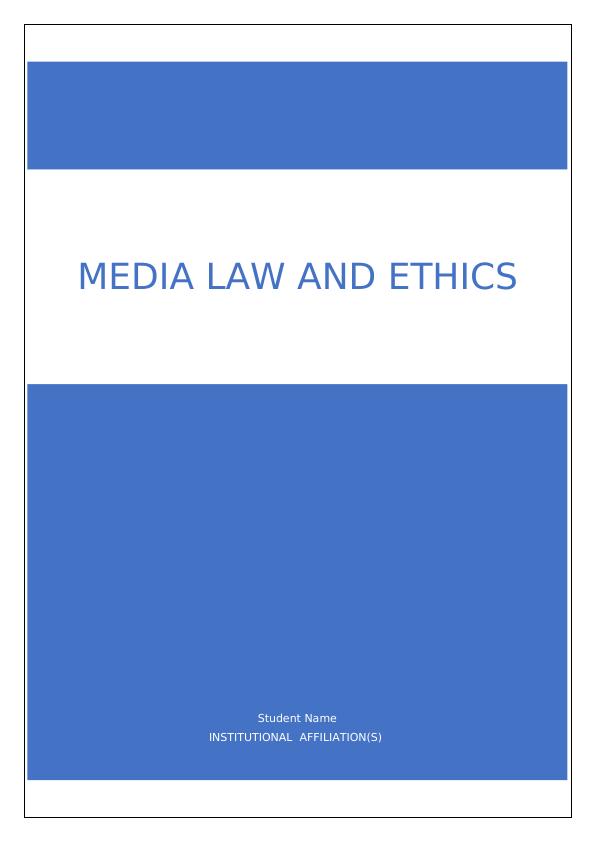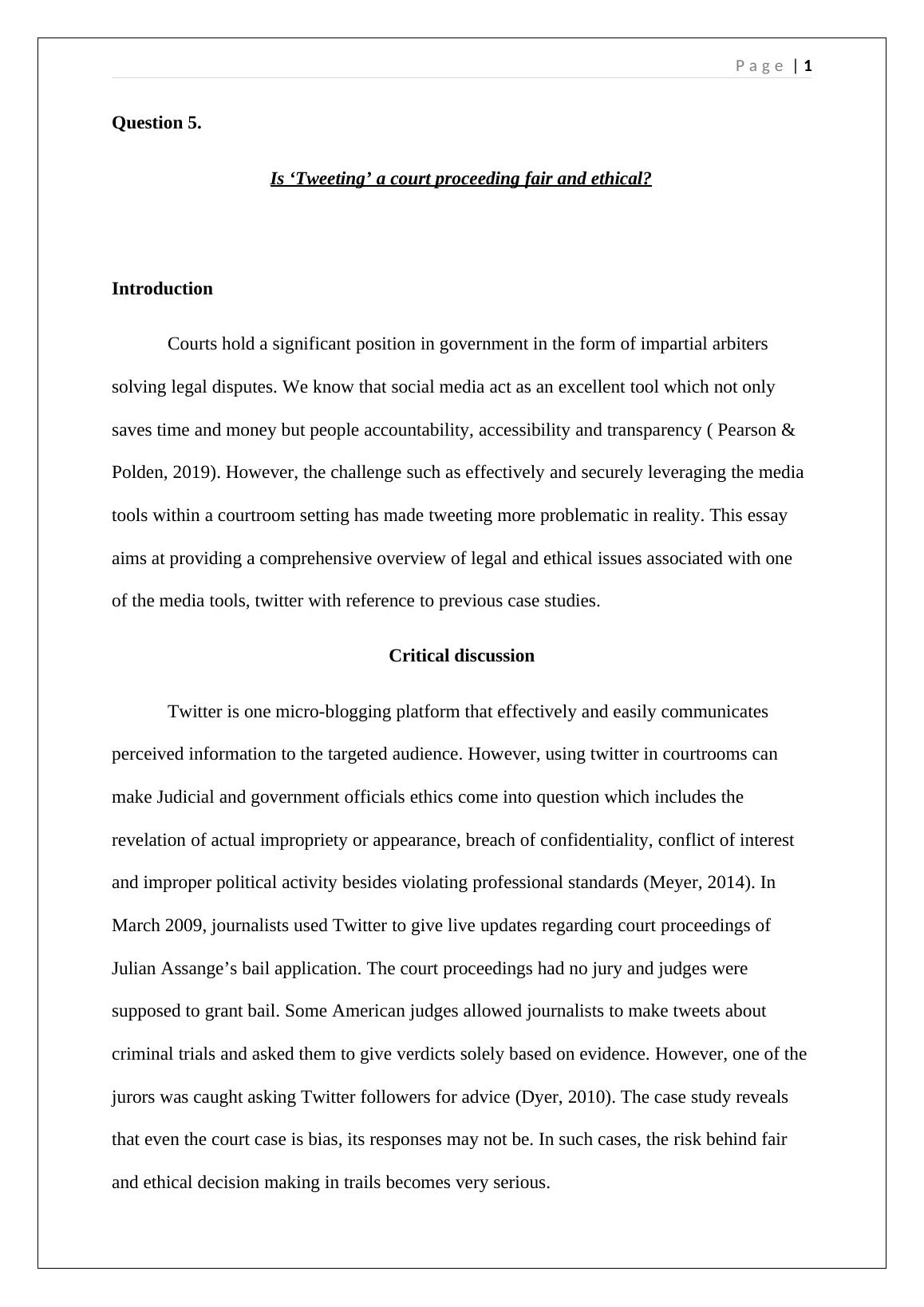Journal of Media Law and Ethics -
Choose two essay questions and write 500 words each on the chosen topics. Include separate headings for each essay and upload the document to Turnitin. Use research to support your arguments.
4 Pages740 Words15 Views
Added on 2022-09-09
Journal of Media Law and Ethics -
Choose two essay questions and write 500 words each on the chosen topics. Include separate headings for each essay and upload the document to Turnitin. Use research to support your arguments.
Added on 2022-09-09
ShareRelated Documents
End of preview
Want to access all the pages? Upload your documents or become a member.
CRJ3014 Criminal Justice and the Media
|6
|972
|209
Courtroom Observation Report
|6
|1795
|137
Contempt of Court by Publication: Tension Between Fair Trial and Freedom of Expression
|11
|4115
|1


